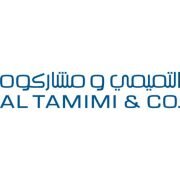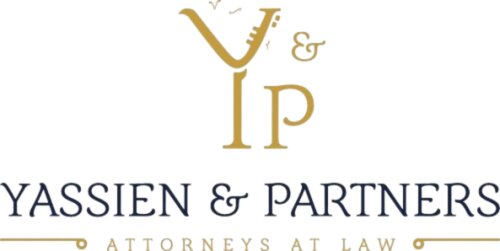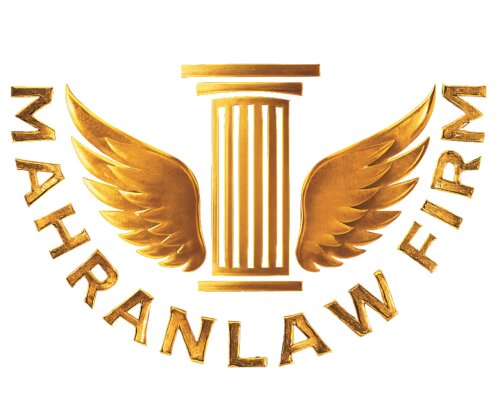Best Private Equity Lawyers in Agouza
Share your needs with us, get contacted by law firms.
Free. Takes 2 min.
List of the best lawyers in Agouza, Egypt
About Private Equity Law in Agouza, Egypt
Private equity activity in Agouza, a district within Greater Cairo, follows the national legal framework of Egypt while involving local practicalities such as corporate registration and interactions with Giza governorate authorities and local courts. Investors and managers use private equity to acquire, grow and exit companies across sectors - including retail, healthcare, real estate, manufacturing and services. Legal practice in this area blends corporate law, investment incentives, tax planning, regulatory compliance and dispute-resolution methods to support deal-making, fund formation and portfolio-company management.
Why You May Need a Lawyer
Private equity transactions are legally and commercially complex. You may need a lawyer when you are:
- Structuring a new fund or vehicle - to decide on the right legal form, governance and regulatory registrations.
- Evaluating an acquisition or investment - to conduct legal due diligence and identify liabilities and contract risks.
- Drafting and negotiating deal documents - including term sheets, share purchase agreements, shareholders agreements and management incentive plans.
- Handling regulatory approvals - such as filings with investment or competition authorities, sector regulators or the Egyptian Exchange if a public element is involved.
- Planning tax and corporate structuring - to manage corporate tax, stamp duty, VAT exposure and potential incentives or exemptions.
- Managing employment, permits and compliance - worker transfers, severance exposure and local labour compliance can be significant.
- Resolving disputes or enforcing rights - including breaches of warranties, minority-protection claims or contractual enforcement via courts or arbitration.
- Preparing for exit - to structure a sale, IPO or secondary transaction, address rep and warranty insurance and complete closing deliverables.
Local Laws Overview
Key legal areas relevant to private equity in Agouza reflect national Egyptian law. The following topics are the most practically important:
- Corporate law and company forms - Egyptian law provides for various company types such as limited liability companies and joint stock companies. Choice of form affects investor control, transferability of shares and disclosure obligations.
- Investment and incentives - Egypt offers investment incentives and guarantees for projects meeting specific requirements. Local authorities and investment authorities may provide tax or customs incentives subject to conditions and approvals.
- Foreign investment rules - Many sectors allow full foreign ownership, but some strategic or regulated sectors may have restrictions or require local partners or approvals.
- Capital markets and fund regulation - Public offers and fund activities that target the public or trade on the Egyptian Exchange are regulated. Fund managers should confirm whether their fund structure triggers licensing or disclosure obligations under the applicable financial regulator rules.
- Tax law - Corporate income tax, withholding taxes on dividends and payments to nonresidents, stamp duties on certain transactions and VAT issues can materially affect deal economics. Tax residency and structuring are important for exits.
- Competition and merger control - Large transactions may require clearance from competition authorities if they reach market-share or turnover thresholds affecting competition.
- Employment and social insurance - Transfers of business, terminations and incentive schemes must comply with labour law and social insurance rules. Employment-related liabilities are often a key due diligence focus.
- Real estate and registration - Title search, ownership rights, land-use restrictions and registration with the real estate registry are crucial when assets include property.
- Contract law, security and enforcement - Security interests, pledge and mortgage rules and rules around assignment and enforcement govern how lenders and investors secure value.
- Dispute resolution - Arbitration is commonly used and enforceable in Egypt, but local enforcement steps and court recognition should be planned for. Choice-of-law and forum clauses are critical in cross-border deals.
- Anti-money-laundering and compliance - KYC, AML and sanctions screening are standard for banks, transaction parties and regulated funds.
Frequently Asked Questions
What legal structure is commonly used for private equity investments in Egypt?
Private equity investors commonly use limited liability companies and joint stock companies. The chosen structure depends on governance preferences, investor liability concerns, transferability of securities and exit planning. Fund managers may also create special-purpose vehicles or holding companies for tax and liability purposes.
Can foreign investors own 100 percent of an Egyptian company?
Many sectors allow full foreign ownership, but some strategic or regulated sectors have restrictions or require approvals or local partnerships. It is essential to check sector-specific rules and any licensing requirements before completing a transaction.
Do private equity funds need a local license to operate in Egypt?
Whether a fund needs a local license depends on its structure and activities. Funds that solicit public investment, manage local institutional capital or operate as investment companies may fall under financial regulator licensing and disclosure rules. Offshore or foreign-managed funds typically need local counsel to assess registration or licensing obligations.
What are the main tax considerations for a private equity transaction?
Key tax issues include corporate income tax on profits, withholding taxes on dividends or payments to nonresidents, stamp duties on contracts and asset transfers, VAT on applicable services and potential tax incentives under investment programs. Exit taxes and capital gains treatment are important for exit planning.
How long does a typical legal due diligence take?
Due diligence timelines vary with deal size and complexity. For small to medium transactions, legal due diligence may take two to four weeks. Larger or cross-border deals with complex regulatory or title issues can take several months. Early collection of documents and cooperation from the target speeds the process.
What warranties and indemnities should I expect in a share purchase agreement?
Buyers typically seek warranties on corporate authority, ownership of shares, title to assets, compliance with laws, tax status, employment matters and absence of undisclosed liabilities. Sellers often limit warranty scope, include knowledge qualifiers and negotiate caps, baskets and survival periods for indemnities.
What approvals or filings might be required for a deal in Agouza?
Approvals may include filings with the general commercial registry for share transfers, competition authority clearance for transactions meeting thresholds, sectoral regulator approvals for regulated industries and registrations with investment authorities if incentives or guarantees are used. Local municipal approvals may apply for property or licensing matters.
How are employment issues handled when a company is acquired?
Employment laws protect worker rights and social insurance obligations. Acquisitions may trigger requirements for employee notifications, transfer of employment contracts or severance liabilities if workforce changes occur. Employee benefits, collective bargaining agreements and termination costs must be reviewed in due diligence.
Can shareholder agreements be enforced in Egypt?
Yes, shareholder agreements are generally enforceable if they comply with applicable laws and public policy. Proper drafting, clear dispute-resolution clauses and alignment with corporate documents are essential. Enforcement can be sought in courts or through arbitration if a valid arbitration clause is included.
What are common legal risks unique to the local market?
Common risks include unclear title to real estate, undisclosed regulatory noncompliance, social insurance and labour back-pay claims, sectoral licensing lapses, and the need for formal local registrations for certain corporate acts. Local counsel familiar with Giza and Greater Cairo practices helps identify and mitigate these risks quickly.
Additional Resources
For further help and authoritative information, consider the following types of organizations and bodies:
- General investment authority - for information on investment incentives and registrations.
- Financial regulators - for rules on funds, disclosures and capital markets.
- Egyptian Exchange and market operators - for public-offer and listing guidance.
- Competition authority - for merger control and antitrust clearance requirements.
- Tax authority and ministry of finance - for clarification on tax treatment and procedures.
- Local commercial registry and land registry offices - for company registration and property title searches in Giza and Agouza.
- Egyptian Bar Association and local law firms - to identify qualified private equity and corporate lawyers located near Agouza.
Contacting these bodies or speaking with a specialized local attorney will give up-to-date procedural instructions and application forms relevant to your transaction.
Next Steps
If you need legal assistance with private equity matters in Agouza, consider the following practical steps:
- Gather basic documents - corporate records, financial statements, employment records, licenses and material contracts for the target company.
- Prepare a concise deal summary - describe the transaction, parties, timeline and key concerns so a lawyer can assess quickly.
- Engage a specialist lawyer - choose counsel experienced in private equity, M&A, tax and regulatory work in Egypt and preferably familiar with Greater Cairo and Giza procedures.
- Sign a confidentiality agreement and agree scope - then instruct the lawyer to start legal due diligence and regulatory checks.
- Obtain a written engagement letter - confirming fees, deliverables and timelines to avoid misunderstandings.
- Negotiate key commercial terms - with lawyers drafting term sheets, warranties, indemnities and governance documents tailored to the deal.
- Plan regulatory filings early - identify competition, investment and sectoral approvals and start applications in parallel with due diligence where possible.
- Close and implement - follow closing checklists, complete registrations and address post-closing integration and compliance matters.
Working with a local lawyer early reduces legal surprises, helps protect your investment and improves the prospects for a smooth acquisition, exit or fund operation in Agouza and the wider Egyptian market.
Lawzana helps you find the best lawyers and law firms in Agouza through a curated and pre-screened list of qualified legal professionals. Our platform offers rankings and detailed profiles of attorneys and law firms, allowing you to compare based on practice areas, including Private Equity, experience, and client feedback.
Each profile includes a description of the firm's areas of practice, client reviews, team members and partners, year of establishment, spoken languages, office locations, contact information, social media presence, and any published articles or resources. Most firms on our platform speak English and are experienced in both local and international legal matters.
Get a quote from top-rated law firms in Agouza, Egypt — quickly, securely, and without unnecessary hassle.
Disclaimer:
The information provided on this page is for general informational purposes only and does not constitute legal advice. While we strive to ensure the accuracy and relevance of the content, legal information may change over time, and interpretations of the law can vary. You should always consult with a qualified legal professional for advice specific to your situation.
We disclaim all liability for actions taken or not taken based on the content of this page. If you believe any information is incorrect or outdated, please contact us, and we will review and update it where appropriate.













